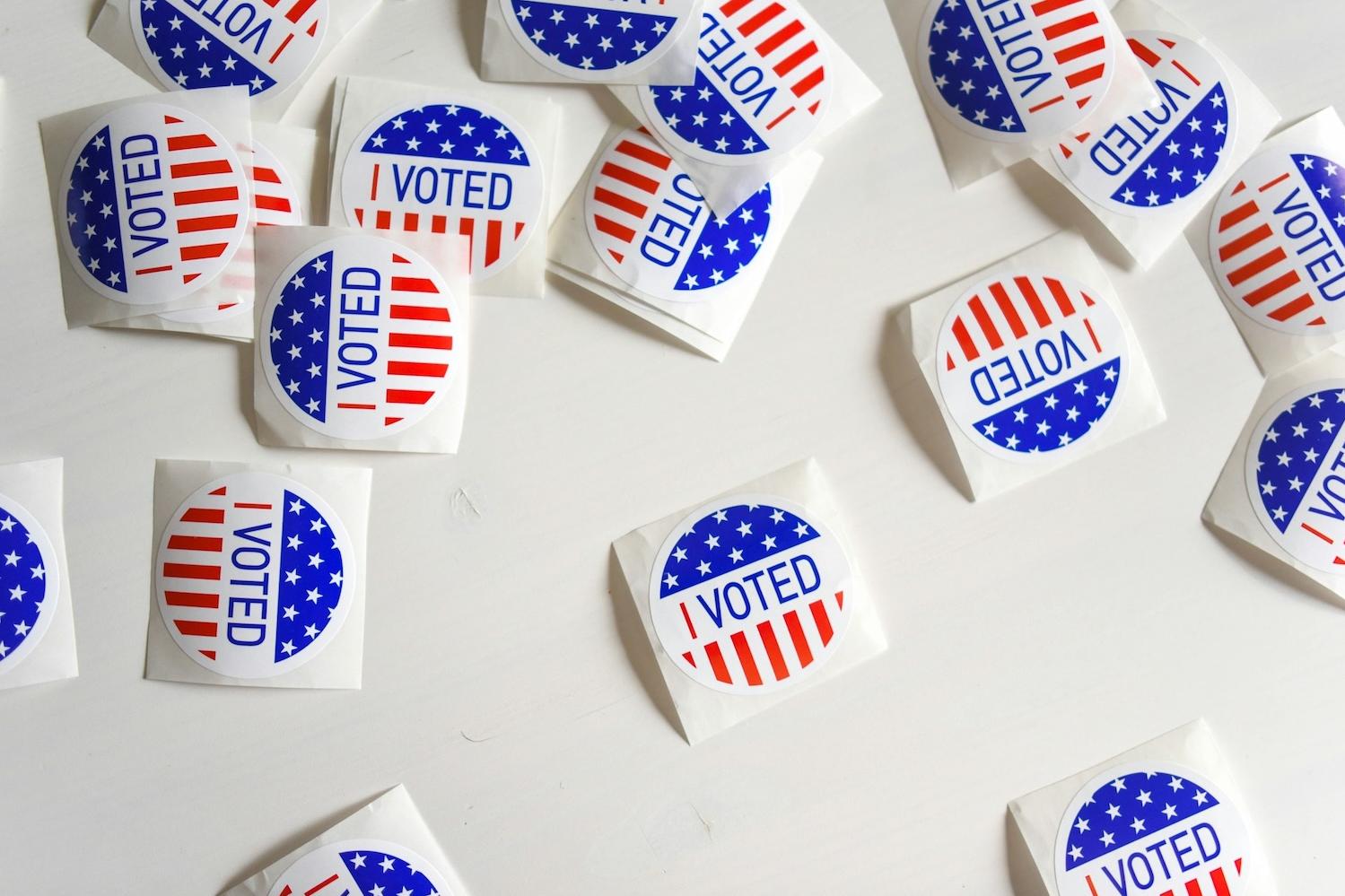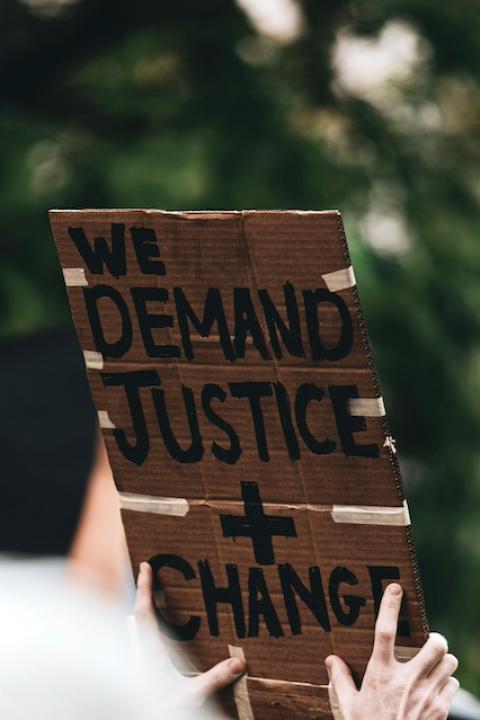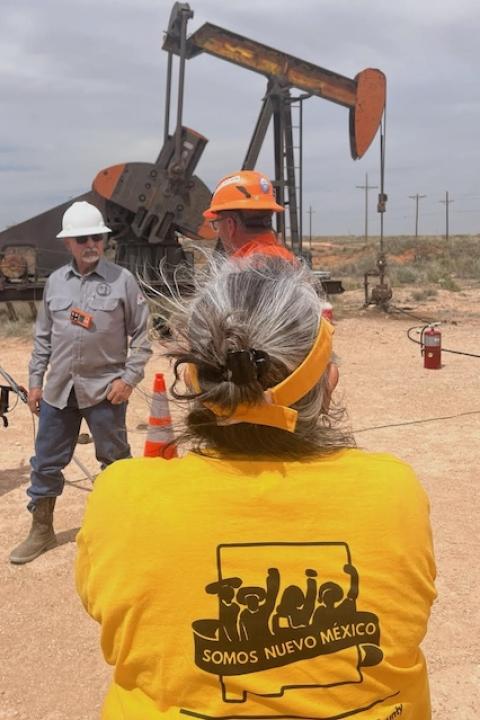
(Image credit: Element5 Digital/Unsplash)
Eighty-five percent of business leaders agree a well-functioning democracy is essential to U.S. capitalism, but 78 percent are concerned about the state of democracy in the United States today. That's according to a recent report from the Leadership Now Project, a bipartisan, pro-democracy group of more than 400 business leaders, which warns of growing political instability in the U.S. ahead of the 2024 election cycle and the potential risks to business.
Business leaders act on worrying threats to free and fair elections in key swing states
Changes to U.S. election administration laws have watchdogs worried. In particular, 15 bills enacted in 13 states — and another 185 introduced in 38 states — would allow partisan state legislatures to manage elections, Leadership Now observed in its report.
The group named election administration laws among the risks to business and society ahead of the presidential and legislative elections in 2024. Others include disinformation campaigns aimed at sowing distrust in the electoral process and threats of violence toward poll workers and election officials.
All of this makes Americans, as well as election workers, understandably nervous. Only 37 percent of Americans surveyed by the Public Affairs Council believe the 2024 election will be open and honest. Advocates worry this could keep people away from the polls, particularly in the seven swing states expected to decide the presidential election: Arizona, Georgia, Michigan, Nevada, North Carolina, Pennsylvania and Wisconsin.
"Because they're swing states and the election is expected to be very close, that's where you have the greatest risk of efforts to undermine the results," said Daniella Ballou-Aares, founder and CEO of the Leadership Now Project. "In Arizona right now, 80 percent of the election administrators have quit their jobs because they’ve been harassed or undermined."
Arizona business leaders associated with the Leadership Now Project are looking toward their peers in another swing state, Wisconsin, to navigate an increasingly fraught landscape and preserve free and fair elections.
Among its efforts, the bipartisan coalition Wisconsin Business Leaders For Democracy stood up to defend state Elections Administrator Meagan Wolfe from an attempted ouster by Republican legislators. Many of Wolfe's detractors in the statehouse repeated false claims of widespread voter fraud in Wisconsin in the 2020 presidential election as a reason for her firing. But the group of prominent Wisconsin business leaders, many of whom are also members of Leadership Now, feel differently.
"Running elections in a big state like Wisconsin is a complicated process," Tom Florsheim, Jr., chairman and CEO of the Wisconsin-based footwear company Weyco Group, told local television news outlet Spectrum News 1 last year. "Here we have somebody that ran an election through a pandemic, which has a lot of challenges in itself, that did an exemplary job, and she's received accolades from both Republicans and Democrats."
A Wisconsin county judge ultimately decided Wolfe should remain in her position and affirmed that legislators do not have the authority to remove state election officials. Among other efforts to uphold integrity and confidence in local elections, members of the Wisconsin business group refuse to endorse any candidate who does not commit to certify future elections. In a campaign launched this week, it's calling on fellow Wisconsin businesses to help their customers get registered to vote, give their employees time off to cast their ballot and encourage poll working.
Leadership Now's Arizona members are looking to replicate some of these actions in an effort to uphold free and fair elections in their state. "It's a pretty powerful example," Ballou-Aares said. "It could be happening in every swing state."
In swing states and beyond: How business leaders can act to defend democracy
"The efforts to undermine faith in elections are part of a broader undermining of the rule of law that is dangerous for business," Ballou-Aares continued. "If you look globally at history, as well as in the last 20 years, when you see countries sliding from democracy … business is often late in recognizing that things are going wrong. They're not the first people to feel it. But then once things erode too much, it's much harder to pull back."
Standing up for basic tenets of democracy — such as the right to vote without interference and have that vote be counted — is not partisan. And business leaders don't need to back a candidate or make a political statement in order to get involved. Here are just a few things to consider as the U.S. and half of the global population prepare to vote in national elections in 2024.
Give employees time off to vote and work the polls. Over recent years, thousands of major companies pledged to give their employees paid time off to cast their ballots as part of business coalitions like the Civic Alliance and Time to Vote. This is a major step to remove tough choices between earning a living and exercising the right to vote.
With poll workers in short supply, going the extra mile to give employees the full day off to volunteer at their local polling place can maximize impact even further. "We need to make sure our elections are administered well," Ballou-Aares said. "We need to support poll workers. We need to support people taking time off to work at the polls. And we need to recognize election officials and workers as critical public servants that we hold in high regard."
Old Navy, for example, offered its 50,000 employees eight hours of paid time off to volunteer as poll workers during the 2020 election and recruited hundreds of customer volunteers on its website, resulting in thousands of hours of poll support. It also earned the brand 2 billion earned media impressions and the most social media buzz it ever received in a single day, Leadership Now highlighted in its report.
Educate people about trusted sources to counter misinformation. In the World Economic Forum's annual risk report, more than 1,400 business executives, politicians, NGO leaders and academics outline the greatest dangers facing the economy each year. Chief among them in 2024 is the threat of misinformation and disinformation driven by artificial intelligence (AI) and how it could influence key elections around the world.
In the U.S. in particular, tech companies and the federal government have moved to restrict AI-generated misinformation, but it's doubtful sufficient protections will be in place in time for the November elections, Ballou-Aares said. Given this, it's up to voters to be diligent. Brands can help by reminding their customers about key election information such as how to find their local polling place, the date of Election Day and the time polls are open, as well as reinforcing the value of trusted sources for information about elections.
"Remind people that, with AI especially, there is a lot of disinformation around elections," Ballou-Aares suggested. "Remind them to check their sources. Even that is a useful thing that companies can do."
Review political spending and trade group memberships. Following the riots inside the U.S. Capitol Building on Jan. 6, 2021, a number of U.S. companies committed to halt campaign donations to lawmakers who sought to overturn the results of the 2020 presidential election. Some followed through and some didn't, but the shift still had an impact. "Even though not everyone's stuck with it, enough did that the resources of election deniers in Congress have gone down meaningfully," Ballou-Aares said.
The majority of funding to political candidates, parties, PACs and outside spending groups comes from business, so governance of this spending matters. Beyond donations to individual politicians, companies should review their political spending and trade group memberships on a regular basis, Ballou-Aares advised. "Your board should know where your money goes politically. Your CFOs should know," she said. "I cannot tell you the number of board members and CFOs I've talked to who have no idea."
Resist the rhetoric. "Too much of what's happening in the business community right now is responding to rhetoric," Ballou-Aares said. She used the ongoing political pushback against the use of environmental, social and governance principles in business decision-making as an example. "Someone says, 'We don't like ESG.' And then everyone agrees, 'I'm not going to say ESG anymore.' That's really dangerous. It’s the same with the idea that speaking about safe elections is partisan."
Yale University historian Timothy Snyder described this phenomenon, which he dubbed "anticipatory obedience," in his 2017 book "On Tyranny." Essentially, as an eroding democracy moves to penalize one person or group for a specific action, others begin to fall in line even before they are directly compelled to do so. “Americans today are no wiser than the Europeans who saw democracy yield to fascism, Nazism, or communism in the twentieth century,” he wrote. “Our one advantage is that we might learn from their experience.”
For U.S. business leaders, that means drowning out the noise, holding strong to decisions and providing evidence to support them as needed. "Stick to the fact-based core of what you know to be true, and don't be influenced by rhetoric," Ballou-Aares said. "You can focus on the things that are detrimental to our system, and that's really valuable."

Mary has reported on sustainability and social impact for over a decade and now serves as executive editor of TriplePundit. She is also the general manager of TriplePundit's Brand Studio, which has worked with dozens of organizations on sustainability storytelling, and VP of content for TriplePundit's parent company 3BL.













